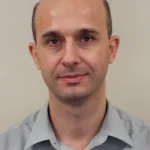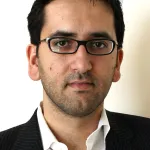Cyber Security Institute and Information Assurance Information
The UT Dallas Cyber Security Research and Education Institute (CSI) currently includes eleven core professors conducting research in data security and privacy, software and language security, secure networks, secure systems and forensics, hardware security, information assurance, cryptography, control systems security, data mining for malware detection and security applications.
UT Dallas has been designated a National Security Agency/Department of Homeland Security Center for Excellence in Information Assurance Education and Research (read more here). The UT Dallas Computer Science department offers advanced and up to date educational cyber security programs; an undergraduate level certificate program, a minor in information assurance, a graduate level certification program, and a graduate level concentration track program in information assurance.
UT Dallas received the NSF Scholarship for Service (SFS) award in 2010 and trains students to obtain Masters Degrees in information assurance (IA) (read more here). Courses currently offered include Systems Security, Network Security, Data/Applications Security, Trustworthy Web Services/Semantic Web, Cryptography, Data Mining for Security and Digital Forensics. Students learn practical aspects of computer systems during hands-on labs, including binary code analysis, kernel internals, malware unpacking, and library interposition to transparently harden software. UT Dallas computer science and software engineer students are fast becoming experts in high-demand areas such as malicious code analysis. UT Dallas students past and present have been involved in active research and have published numerous papers in prestigious journals and conferences.
The Department of Computer Science offers four tracks of study leading to an MS or PhD:
- Information Assurance
Information Assurance Track Students interested in increasing their knowledge in information assurance, network security and the ethics involved in information technology should choose this track. CSI Education Assurance Programs
- Intelligent Systems
- Networks and Telecommunications
- Traditional Computer Science
CSI FACULTY
CSI faculty members offer courses in the cyber security track of study, which leads to a MS or PhD degree for students interested in increasing their knowledge in information assurance, network security, data security, among others. The following people either have overall responsibility for Cyber Security Education and Research Institute at UT Dallas as educators, managers/administrators, or project coordinators.

Bhavani Thuraisingham
- Louis A. Beecherl, Jr. Distinguished Professor of Computer Science and Executive Director of the Cyber Security Research and Education Institute
- Research Interests include:
- Embedded Real-Time Control Systems, Formal Methods and AI-Based Automated Software Synthesis and Validation, High-Assurance Autonomous Decentralized and Net-Centric Systems, High-Confidence System Reliability and Safety Assurance, Self-Stabilization and Inherent Fault Tolerance

Kamil Sarac
- Associate Professor of Computer Science at UT Dallas
- Director of Education, CSI
- Cyber Security Program Director, The Erik Jonsson School of Engineering and Computer Science
- Principal Investigator for the Scholarship for Service (SFS) Program at UT Dallas (Read more about the SFS program Here)
- Director of the Information Assurance education programs within the UT Dallas CS department.
- Research Interests include:
- Computer networks, network and service monitoring and Internet measurements, overlay networks, network security and denial-of-service defense; broadcast in ad hoc networks, group communication and IP multicast.

Murat Kantarcioglu
- Associate Professor of Computer Science at UT Dallas
- Director, Data Security and Privacy, CSI
- Research Interests include:
- Security and privacy issues raised by data mining; distributed data mining techniques; security issues in databases, applied cryptography and secure multiparty computation techniques, data mining for intrusion detection.

Kevin Hamlen
- Professor of Computer Science at UT Dallas
- Director, Software and Systems Security, CSI
- Research Interests include:
- Software security, compilers, programming languages, program verification, virtual machines, mobile code, automata and complexity theory.

Zhiqiang Lin
- Assistant Professor of Computer Science at UT Dallas
- Director, Systems Security and Forensics, CSI
- Research Interests include:
- Software Security, binary code analysis reuses, OS kernel security, hypervisor’s control, data integrity, Cloud Computing, Digital Forensics, Smartphone Security, virtualization, reverse engineering.
Yvo Desmedt
- Jonsson Distinguished Professor
- Fellow of the IACR
- Director, Cryptography, CSI
- Research Interests include:
- Access control, anonymity and internet voting, conventional cryptography, bridging theory and practice, critical infrastructures, cryptanalysis, breaking and hacking of systems, computer security, distributed and network security (including reliable and perfectly secure message transmission, secret sharing, secure multiparty computation, verifiable secret sharing), economic models for information security, hardware security, public key cryptography

Alvaro Cardenas
- Assistant Professor of Computer Science at UT Dallas
- Director, Control Systems Security, CSI
- Research interests include:
- Computer security, Intrusion detection, critical infrastructure protection, smart grid security and privacy, big data analytics for security, wireless networks, security economics, game theory, embedded systems, trusted computing

Yiogros Makris
- Associate Professor of Computer Engineering at UT Dallas
- Director, Hardware Security, CSI
- Research Interests include:
- Applications of machine learning and statistical analysis towards enhancing robustness and trustworthiness of integrated circuits (ICs) and systems, developing methods for detecting hardware Trojans and counterfeit ICs, protocols for trusted acquisition of third party hardware intellectual property (IP), post-deployment trust monitoring solutions, as well as general test and reliability methods for digital and analog circuits.

Zygmunt Haas
- Professor and Distinguished Chair in Computer Science at UT Dallas
- Director, Wireless Network
- Research Interests include:
- Wireless Communications, Mobile Systems, Biologically Inspired Complex Systems and Networks.

Latifur Khan
- Professor of Computer Science at UT Dallas
- Director, Big Data Analytics, CSI
- Research Interests include:
- Data Science, semantic web, intrusion detection, complex (geographic/multimedia) data management.
Informative Websites
- Cyber Security Research and Education Institute (CSI) Main Page – Click Here
- Please click here for a presentation on the Cyber Security Research and Education Institute.
- For more detailed information about the Cyber Security Research and Education Institute (CSI), please see the following: CSI overview
- Information Assurance Program – Click Here
- NSA/DHS designates UT Dallas a CAE-Cyber Operation Institute – UT Dallas CS Dept. Website Article
- CyberCorps®: Scholarship for Service (SFS) Program Trains Future Cybersecurity Workforce – UT Dallas CS Dept. Website Article
- UT Dallas Cyber Security Scholarship Program (SFS program) – Click Here
- Cyber Security Research and Education Institute (CSI) Education Center page – contains information on the four tracks of study leading to an MS or PhD; Information Assurance, Intelligent Systems, Network and Telecommunications, and Traditional Computer Science – Click Here




